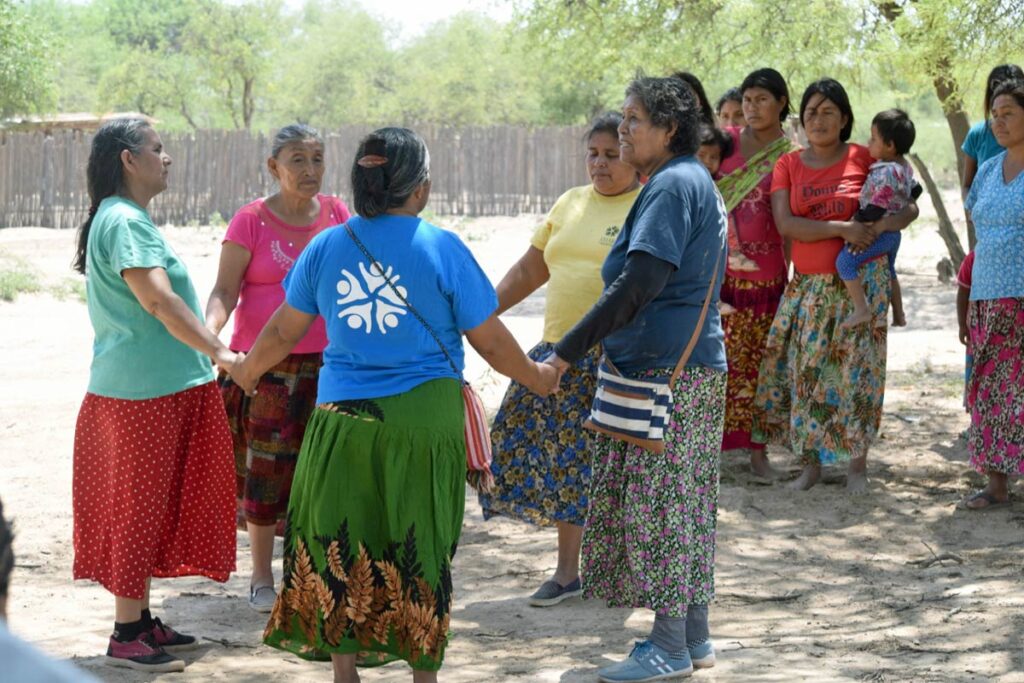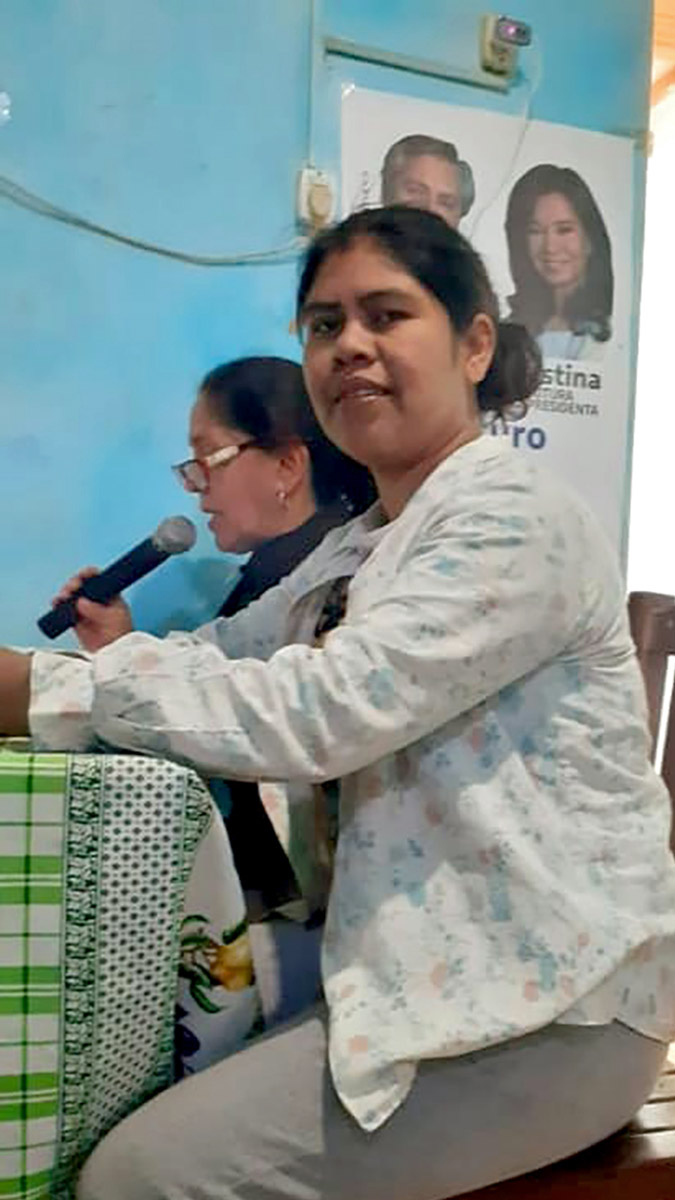An unstoppable wave of women
Despite growing pressures, hundreds of indigenous women in northern Argentina are stepping up and putting their faith and love into action for their communities.
What began with a handful of women in northern Argentina in 2016 has grown into a movement of more than 1,400 women across the Anglican Province of South America.
AMARE (affiliated with Mothers’ Union) seeks to gather women and help them experience and understand God’s love for them and how important they are, so that they can love and serve others. (Matthew 22:37–39 is foundational.) When women become members, they promise to bless their families, churches and communities, with forgiveness and reconciliation also integral. AMARE stands for Anglican Women’s Group Renewed in the Spirit. The acrostic describes its mission: Animar, to encourage, Motivar, to motivate, Afirmar, to affirm, Renovar en el Espiritu, to be renewed constantly in the Spirit.
The greatest membership is in rural areas of the Diocese of Northern Argentina, among the Indigenous peoples. One Wichi woman, Isabel Vilte (died 2020), was an inspirational leader who blazed the way for women. Having been part of Mothers’ Union under the leadership of early missionaries, contact was re-established around parenting programmes. Women had continued to pray for their families, with many feeling perplexed about guiding their children in a changed world. Women were encouraged to begin AMARE as a local identity to give them a voice and dignity.
Navigating a new world
Indigenous communities face increasing Western influence. Families feel this acutely – parents are ill-equipped to guide their children in interacting with unfamiliar culture and technology. Traditional skills are sidelined and parents feel powerless as they see their way of life eroding.

AMARE parenting facilitators have held training groups to help parents navigate this new world. One parent saw this as, “a great blessing… [it] helped us feel good, it shows us how to live each day as family.” Yet facilitators increasingly faced discouragement, with lack of time or acceptance in their communities, and challenges with materials and language limiting their effectiveness.
In early 2020, 28 AMARE training facilitators (including Wichi and Toba) came together to evaluate the training, consider the challenges facing families and develop strategies to increase outreach. Facilitators adapted the format to connect better – and some held a group soon afterwards that greatly helped parents and carers.
Changed challenges
As 2020 progressed, the COVID-19 pandemic changed the picture for AMARE. Prior to the pandemic, gathering in community was hugely important and members undertook uncomfortable journeys, slept on church floors and accepted uncertainty around food to be together. So, with tight restrictions on movement and gathering, how could they connect?
Part of Mothers’ Union’s rhythm is a daily “wave of prayer”, and in the AMARE WhatsApp group (with members across South America), the pandemic prompted women to begin posting and praying daily at noon. This was intended to sustain the group during the early days of the pandemic, but it continues more than 18 months later.
To reach those they couldn’t visit, mission partner Catherine Le Tissier reported, “[women] are finding creative ways of keeping in touch and caring for those in need. Some of the AMARE women have started a regular radio programme, which allows for a much wider sharing of news, testimonies, teaching and prayer, and reaches all those not able to go out during lockdown.”

Love in action
The heart of AMARE’s vision is to put love into action. Prior to the pandemic, as well as supporting parents, praying and visiting the sick, members ministered to young people caught in addiction, were involved with health education or helped in Sunday schools. The anniversary of AMARE each year sees members offering to pray for the authorities, and visiting local hospitals and schools.
During the pandemic, the enforcement of restrictions in some areas was heavy handed. Both indigenous and Criollo communities feared being taken away to enforced quarantine in unsanitary conditions if it was suggested there was a case of COVID-19. Yet still, the women of AMARE found ways to put love into action. Sent to an isolation centre, Wichi members took time to talk and pray for others at the centre who were scared.
Catherine continues, “Two leaders of AMARE, Gladys and Mirna, continue to attend to all those who call at their door, looking for prayer or support. I am full of admiration for those amazing leaders who continue daily to be there for others, despite their own challenges.”
Joining global voices
In addition to serving their own communities, the women of AMARE have joined with others around the world in the Mothers’ Union “No more 1 in 3” campaign against gender-based violence. In 2020, AMARE women spoke out on social media and took part in web-based events focused on eradicating abuse and violence towards women. In 2021 they reached out into their communities with prayer diaries and more information. Their presence was widely appreciated, as domestic violence and abuse are rife.
AMARE has also grown an online presence with a YouTube channel that is home to resources including workshops, Bible studies, Wichi hymns and prayers. Many members have mobile phones to access online material. In one rural Toba community, AMARE women gather around a laptop to listen to recorded workshops.
Catherine comments, “One great blessing of the pandemic has been the way the women have responded to keeping in contact, especially through prayer, across different countries and churches.” The wave continues from woman to woman across cultures and continent, as remarkable, resilient indigenous and urban women continue live out their name: “AMARE! I will love!”